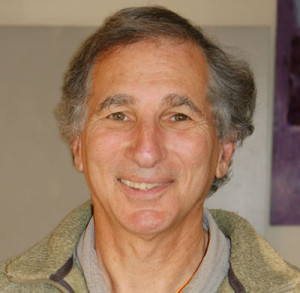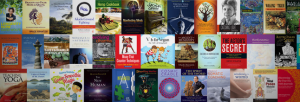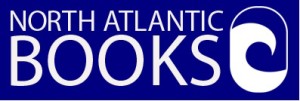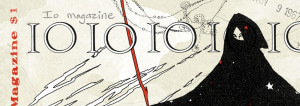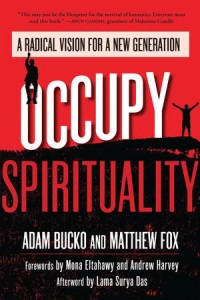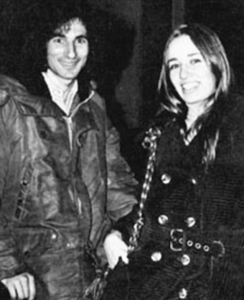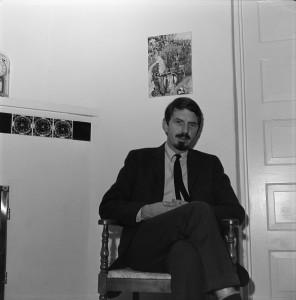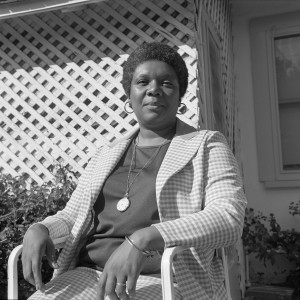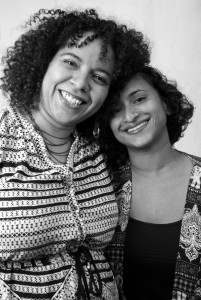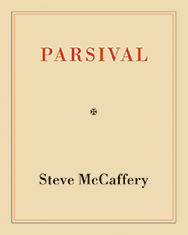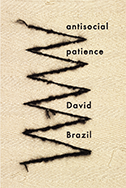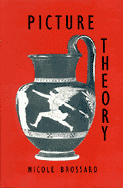David Wilk interviews Lee Klancher of Octane Press
September 6, 2016 by David
Filed under Publishing History, PublishingTalks
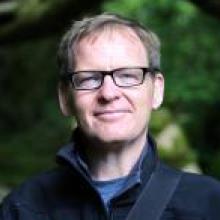 Publishing Talks began as a series of conversations with book industry professionals and others involved in media and technology about the future of publishing, books, and culture. I’ve talked with publishing industry leaders about how publishing has and will continue to evolve and now include conversations that go beyond the future of publishing. I’ve had conversations with editors and publishers who have been innovators and leaders in independent publishing in the past and present. This series of talks continues to explore the ebb and flow of writing, books, and publishing.
Publishing Talks began as a series of conversations with book industry professionals and others involved in media and technology about the future of publishing, books, and culture. I’ve talked with publishing industry leaders about how publishing has and will continue to evolve and now include conversations that go beyond the future of publishing. I’ve had conversations with editors and publishers who have been innovators and leaders in independent publishing in the past and present. This series of talks continues to explore the ebb and flow of writing, books, and publishing.
For the past several years, I’ve been talking to editors and publishers of independent presses about their work. Many of them have been literary publishers. But there are a number of really excellent independent presses that have achieved success in other subject areas. It usually requires being specialized and knowledgeable about a specialized field, and being integral to a specific community of enthusiasts and readers, to find and sustain success.
Octane Press is one such endeavor. This fine publisher focuses on cars, farm machines, motorsports and motorcycles. This may seem a relatively narrow niche of readers, but it is one that works well for this publisher. Founded by photographer, writer and editor Lee Klancher, Octane Press is an excellent example of how to successfully build a print-based publishing business in the modern era. The company has won an array of awards, and has grown steadily since it began. I am very pleased to have had the opportunity to talk to Lee about his work and the story of Octane Press, and I think listeners interested in contemporary publishing will find his story compelling and his experience valuable.
Lee Klancher has been publishing great stories for more than twenty years. As an editor and publisher, he has worked on some of the most-respected and best-selling books in transportation publishing. He is a prolific author and an excellent photographer, and has contributed content to more than 30 books, as well as dozens of national magazines including Men’s Journal, Draft, and Motorcyclist.
Lee has taught writing and photography at the Minneapolis College of Art and Design. He is best-known for his photography of collectible farm tractors that appears in his books and calendars. Lee lives in Austin, Texas, where Octane Press is located. 

Podcast: Play in new window | Download
David Wilk interviews Jess Brallier
June 21, 2016 by David
Filed under Ebooks and Digital Publishing, Publishing History, PublishingTalks, The Future
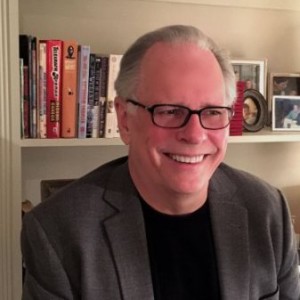 Publishing Talks began as a series of conversations with book industry professionals and others involved in media and technology about the future of publishing, books, and culture. As we continue to experience disruption and change in all media businesses, I’ve been talking with some of the people involved in our industry about how publishing might evolve as our culture is affected by technology and the larger context of civilization and economics.
Publishing Talks began as a series of conversations with book industry professionals and others involved in media and technology about the future of publishing, books, and culture. As we continue to experience disruption and change in all media businesses, I’ve been talking with some of the people involved in our industry about how publishing might evolve as our culture is affected by technology and the larger context of civilization and economics.
I’ve now expanded the series to include conversations that go beyond the future of publishing. I’ve talked with editors and publishers who have been innovators and leaders in independent publishing in the past and into the present, and continue to explore the ebb and flow of writing, books, and publishing in all sorts of forms and formats, as change continues to be the one constant we can count on.
Jess Brallier is one of those interesting, experienced innovators in publishing with whom I enjoy talking about all sorts of book related subjects. He’s worked in adult trade publishing, but has also had significant success with children’s and YA books, has long been involved in digital technologies, and notably was instrumental in the creation of the wildly best selling Diary of a Wimpy Kid by Jeff Kinney. And he is a prolific book writer himself, as well. His vast experience has provided him with a unique perspective about books and publishing, and he is just the kind of person who makes this interview series interesting and fun for me to do.
Here’s the more or less “official” biography Jess sent me: Jess M. Brallier currently serves the publishing industry as a media and revenue agnostic consultant to small, mid, and large publishing houses, and a developer of original IP, both print and animated. His career spans th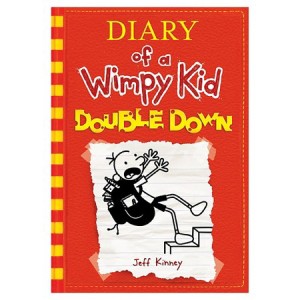 e publishing of books and digital storytelling from brick-and-mortar and the web, to virtual worlds and social media. He had his own children’s imprint, Planet Dexter (Penguin) and used the web to establish and launch newly $800M in original IP (Diary of a Wimpy Kid, Big Nate, Poptropica, Galactic Hot Dogs, etc.)
e publishing of books and digital storytelling from brick-and-mortar and the web, to virtual worlds and social media. He had his own children’s imprint, Planet Dexter (Penguin) and used the web to establish and launch newly $800M in original IP (Diary of a Wimpy Kid, Big Nate, Poptropica, Galactic Hot Dogs, etc.)
He also worked closely with, and was essential to causing bestsellers for, Norman Mailer, William Manchester, William Least Heat Moon, Herman Wouk, William Shirer, Bailey White, Anne Morrow Lindbergh, and many others. Brallier is a frequent speaker at both digital and book industry conferences, has served on the faculty of university-based publishing programs, and is the author or co-author of over 30 adult and children’s books.
I hope you enjoy listening to Jess as much as I did.
And not too long at 41 minutes, in case you were wondering.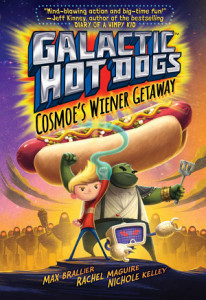
Podcast: Play in new window | Download
David Wilk Interviews Richard Grossinger of North Atlantic Books
May 22, 2016 by David
Filed under Publishing History, PublishingTalks, The Future
Publishing Talks began as a series of conversations with book industry professionals and others involved in media and technology about the future of publishing, books, and culture. As we continue to experience disruption and change in all media businesses, I’ve been talking with some of the people involved in our industry about how publishing might evolve as our culture is affected by technology and the larger context of civilization and economics.
I’ve now expanded the series to include conversations that go beyond the future of publishing. I’ve talked with editors and publishers who have been innovators and leaders in independent publishing in the past and into the present, and will continue to explore the ebb and flow of writing, books, and publishing in all sorts of forms and formats, as change continues to be the one constant we can count on.
It’s my hope that these conversations can help us understand the outlines of what is happening in publishing and writing, and how we might ourselves interact with and influence the future of publishing as it unfolds.
Over the past few years, I’ve talked to a number of independent publishers in an effort to document the extraordinary period of the past 40 years, which has been a sort of golden age of innovation and creativity, as publishing has literally been redefined. The number of great publishers established during this time in almost every category of publishing is pretty incredible.
One of the presses that has had a special impact on my own work is North Atlantic Books, founded by Richard Grossinger and Lindy Hough, as a transformation of their literary journal, Io, which they began together in 1965 as undergraduates at Amherst and Smith Colleges respectively. Richard and Lindy have been important mentors, friends, and colleagues to me for more than forty years, and their influence on my thinking about writing, ideas and books has been profound.
Since both Richard and Lindy are writers and editors with their own individual interests and styles, I thought it would make sense to interview each of them separately for this Publishing Talks series of conversations. Each of these conversations can stand independently or together. They tell two versions of an almost mythologic story, which I hope listeners will find as compelling as it was for me when I spoke to them.
Io is one of a number of influential literary magazines established in the sixties and seventies, publishing poets, film-makers and visual artists, many of whom were related to what has become known as the New American Poets, with influences ranging from Black Mountain College and the New York School to hermeticism and mystical spirituality. Io was singular in that it was most frequently a one-subject magazine, and this led eventually to the establishment of North Atlantic Books, which was incorporated in 1974 as a non-profit literary publisher in California.
Richard Grossinger was born November 3, 1944, and grew up in Manhattan. He graduated from Amherst College in June 1966 with a B.A. in English. That same month he married Lindy Hough, who attended Smith College in Northampton, Massachusetts.
He received a Ph.D. in anthropology from the University of Michigan for an ethnography incorporating economic and ecological studies of fishing communities in Eastern Maine and subsequently taught anthropology and other subjects at the University of Maine and Goddard College.
Io published 23 issues through 1976 before merging with North Atlantic and converting its publications to anthologies thereafter. Richard and Lindy served as the co-publishers of North Atlantic Books from 1974 onward, and Grossinger now functions mainly as acquisitions editor, while the press is run by its staff and board of directors.
Grossinger is the author of many books including Planet Medicine, The Night Sky, Embryogenesis, New Moon, Migraine Auras, On the Integration of Nature, and The Bardo of Waking Life.
This is the “official” description of North Atlantic Books, taken from its website:
North Atlantic Books is a nonprofit publisher committed to an eclectic exploration of the relationships between mind, body, spirit, and nature. Founded in 1974 by Richard Grossinger and Lindy Hough, NAB aims to nurture a holistic view of the arts, sciences, humanities, and healing. Over the decades, it has been at the forefront of publishing a diverse range of books in alternative medicine, ecology, and spirituality. NAB is the publishing program of the Society for the Study of Native Arts and Sciences, a 501(c)(3) nonprofit educational organization that promotes cross-cultural perspectives linking scientific, social, and artistic fields. With more than one thousand books in print, NAB has operated from Berkeley, California, since 1977.
My conversation with Richard Grossinger was recorded in December, 2016. This interview runs 52 minutes.
More about Richard Grossinger here.
Richard’s history of North Atlantic Books is on his website here. Companion interview with co-editor and co-publisher Lindy Hough is here.
Podcast: Play in new window | Download
David Wilk interviews Lindy Hough of North Atlantic Books and Io Magazine
May 9, 2016 by David
Filed under Ebooks and Digital Publishing, Publishing History, PublishingTalks, The Future
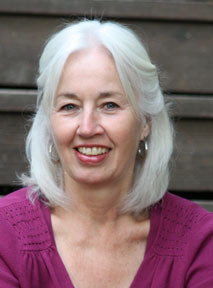 Publishing Talks began as a series of conversations with book industry professionals and others involved in media and technology about the future of publishing, books, and culture. As we continue to experience disruption and change in all media businesses, I’ve been talking with some of the people involved in our industry about how publishing might evolve as our culture is affected by technology and the larger context of civilization and economics.
Publishing Talks began as a series of conversations with book industry professionals and others involved in media and technology about the future of publishing, books, and culture. As we continue to experience disruption and change in all media businesses, I’ve been talking with some of the people involved in our industry about how publishing might evolve as our culture is affected by technology and the larger context of civilization and economics.
I’ve now expanded the series to include conversations that go beyond the future of publishing. I’ve talked with editors and publishers who have been innovators and leaders in independent publishing in the past and into the present, and will continue to explore the ebb and flow of writing, books, and publishing in all sorts of forms and formats, as change continues to be the one constant we can count on.
It’s my hope that these conversations can help us understand the outlines of what is happening in publishing and writing, and how we might ourselves interact with and influence the future of publishing as it unfolds.
Over the past few years, I’ve talked to several independent publishers in an effort to document the extraordinary period of the past 40 years, which has been a kind of golden age of innovation and creativity as publishing has literally been redefined. The list of great publishers established during this time in almost every category of publishing is amazing.
One of those presses that has had a special impact on my own work is North Atlantic Books, founded by Richard Grossinger and Lindy Hough as an outgrowth of their literary journal called Io, which they began together in 1965 when they were undergraduates at Amherst and Smith Colleges respectively. Richard and Lindy have been mentors, friends, and colleagues of mine for more than forty years, and their influence on my thinking about writing, ideas and books has been profound.
Since both Richard and Lindy are writers and editors with their own individual interests and styles, I thought it would make sense to interview each of them separately for this series of conversations. These two conversations can stand independently or together. They tell two versions of an amazing and almost mythologic story, which I hope listeners will find as compelling as it was for me when I spoke to them.
Io Magazine traveled with Lindy and Richard, moving to Michigan, Maine, Vermont and eventually California. Io is one of a number of influential literary magazines established in the sixties and seventies, publishing poets, film-makers and visual artists, many of whom were related to what has become known as the New American Poets, with influences ranging from Black Mountain College and the New York School to hermeticism and mystical spirituality. Io was singular in that it was most frequently a one-subject magazine, and this led eventually to the establishment of North Atlantic Books, which was incorporated in 1974 as a non-profit literary publisher in California.
North Atlantic Books has become one of the most successful and influential independent presses in America with a strong focus on spirituality and alternative health, while continuing its commitment to literary publishing.
Lindy graduated from Smith College and received an MFA in Creative Writing at Goddard College. She is the author of seven books of poetry, non-fiction, and fiction (including one book I published in 1978, the excellent Outlands & Inlands). She has taught literature and writing in Michigan, Maine, Vermont and California, and is currently finishing a novel.
This is the “official” description of North Atlantic Books, taken from its website:
North Atlantic Books is a nonprofit publisher committed to an eclectic exploration of the relationships between mind, body, spirit, and nature. Founded in 1974 by Richard Grossinger and Lindy Hough, NAB aims to nurture a holistic view of the arts, sciences, humanities, and healing. Over the decades, it has been at the forefront of publishing a diverse range of books in alternative medicine, ecology, and spirituality. NAB is the publishing program of the Society for the Study of Native Arts and Sciences, a 501(c)(3) nonprofit educational organization that promotes cross-cultural perspectives linking scientific, social, and artistic fields. With more than one thousand books in print, NAB has operated from Berkeley, California, since 1977.
Richard and Lindy are now retired from full time work with the press they founded, and each is now actively writing and editing books.
Our conversation was recorded in December, 2016. (55 minutes runtime)
Podcast: Play in new window | Download
David Wilk interviews Robert Pennoyer about the Whiting Awards
March 30, 2016 by David
Filed under Publishing History, PublishingTalks
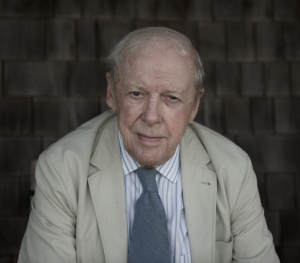 Publishing Talks began as a series of conversations with book industry professionals and others involved in media and technology about the future of publishing, books, and culture. As we continue to experience disruption and change in all media businesses, I’ve been talking with some of the people involved in our industry about how publishing might evolve as our culture is affected by technology and the larger context of civilization and economics.
Publishing Talks began as a series of conversations with book industry professionals and others involved in media and technology about the future of publishing, books, and culture. As we continue to experience disruption and change in all media businesses, I’ve been talking with some of the people involved in our industry about how publishing might evolve as our culture is affected by technology and the larger context of civilization and economics.
I’ve now expanded the series to include conversations that go beyond the future of publishing. I’ve talked with editors and publishers who have been innovators and leaders in independent publishing in the past and into the present, and will continue to explore the ebb and flow of writing, books, and publishing in all sorts of forms and formats, as change continues to be the one constant we can count on.
It’s my hope that these conversations can help us understand the outlines of what is happening in publishing and writing, and how we might ourselves interact with and influence the future of publishing as it unfolds.
It’s well known to all that literary writers more often than not struggle financially. This is especially true for writers early in their careers. According to most research, fewer than five per cent of writers who identify as “professional” are able to make their livings directly from writing.
Aside from the National Endowment for the Arts fellowships for writers, there are few programs that provide direct support to emerging and early career literary writers. That is why the Whiting Awards, given annually by The Whiting Foundation since 1985 have been so meaningful to literary culture, and of course, to the writers who have received this form of support.
The Whiting Foundation provides $50,000 to each of ten writers every year. Writers cannot apply for these awards–instead, Whiting accepts nominations from 100 individuals in the literary arts, and then an anonymous panel of six toils in secret throughout the year to read the work, and then argue over who should be selected based based on the criteria of early-career achievement and the promise of superior literary work to come.
Overall, more than $6.5 million has been awarded to 310 poets, fiction and nonfiction writers, and playwrights to date. This is an incredible program that has had a remarkable impact on American literature. Some of the now recognizable writers selected over the course of the last 30 years include David Foster Wallace, Colson Whitehead, Tracy K. Smith, Jeffrey Eugenides, Lydia Davis, Denis Johnson, Susan-Lori Parks, Mary Karr, Tony Kushner, Michael Cunningham, Alice McDermott, August Wilson, Jorie Graham, Mark Doty, Deborah Eisenberg, Ben Fountain, Justin Cronin, Tobias Wolff, Jonathan Franzen, Terrance Hayes, Ian Frazier, and John Jeremiah Sullivan, all of whom were “emerging” when their awards were given.
Every time I see a new list of Whiting Award winners, I feel compelled to explore their work, as I am sure I will find some whose writing will affect my imagination and attract me to continue to follow them in the future.
The recently announced 2016 winners are:
Brian Blanchfield, Nonfiction
Alice Sola Kim, Fiction
J. D. Daniels, Nonfiction
Catherine Lacey, Fiction
LaTasha N. Nevada Diggs, Poetry
Layli Long Soldier, Poetry
Madeleine George, Drama
Safiya Sinclair, Poetry
Mitchell S. Jackson, Fiction
Ocean Vuong, Poetry
So how did the Whiting Awards come about? The history of the Whiting Foundation is a fascinating story. I had the good fortune to publish the memoir of attorney Robert Pennoyer in 2015, As it Was, in which he recounts the story of the Whiting Foundation and its programs. Bob was one of the first trustees of the Whiting Foundation, as his firm had represented Flora Whiting, who was quite an amazing and brilliant woman.
As Bob writes, “In 1921, before IBM had even acquired its name, she had had the good fortune to sit next to Thomas J. Watson, Sr., at dinner. He told her, “My dear, I have a new company that’s going to be making things.” She invested in the stock when it was almost worthless and held on to it for almost fifty years. When she died, in 1970, she left $10 million to the foundation that she had established, with no restriction on how it should be used.”
At the outset, the foundation supported the humanities, but as its endowment continued to grow, it had to create some additional programs; Bob’s wife, Vicky was a poet, and she suggested that creative writers were in need of some meaningful support. The trustees agreed, and then hired Gerald Freund, who had worked with the MacArthur Foundation to establish their “genius” awards, to design a program to support emerging writers, and thus the Whiting Awards to Writers began.
I am pleased to present here my conversation with Bob Pennoyer, recorded in his office in New York City, talking about the Whiting Awards. His first-hand accounts of the history he has lived are unmatched. In fact, Bob’s book is full of such fine storytelling. Bob has been an attorney with the Patterson, Belknap law firm in New York City since 1958. Before that he served as counsel in the Defense Department (where he has the pleasure of testifying in front of Senator Joe McCarthy) and was in the US Navy during World War II.
Bob Pennoyer was president of the board of trustees of the Whiting Foundation for many years. In the 1960’s, Bob was a founder and trustee of Exodus House, a halfway house for addict rehabilitation in East Harlem and he has served as a trustee of Union Theological Seminary, Carnegie Institution in Washington, Columbia University and is currently serving as trustee of the William C. Bullitt Foundation and trustee emeritus of the Metropolitan Museum of Art and the Morgan Library and Museum.
“…The spirit that flows through these pages may be modest, but it is also filled with an irrepressible optimism and a faith in simple values that are both uplifting and marvelously contagious. As It Was is a lesson in a life well lived, and a tonic for dark and troubled times.”
— Scott Horton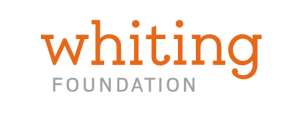
Podcast: Play in new window | Download
David Wilk Talks with Wendy Burk of the University of Arizona Poetry Center
March 22, 2016 by David
Filed under Publishing History, PublishingTalks
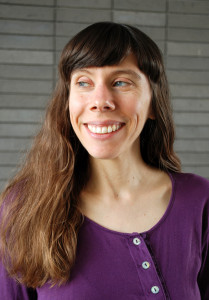 Publishing Talks began as a series of conversations with book industry professionals and others involved in media and technology about the future of publishing, books, and culture. As we continue to experience disruption and change in all media businesses, I’ve been talking with some of the people involved in our industry about how publishing might evolve as our culture is affected by technology and the larger context of civilization and economics.
Publishing Talks began as a series of conversations with book industry professionals and others involved in media and technology about the future of publishing, books, and culture. As we continue to experience disruption and change in all media businesses, I’ve been talking with some of the people involved in our industry about how publishing might evolve as our culture is affected by technology and the larger context of civilization and economics.
I’ve now expanded the series to include conversations that go beyond the future of publishing. I’ve talked with editors and publishers who have been innovators and leaders in independent publishing in the past and into the present, and will continue to explore the ebb and flow of writing, books, and publishing in all sorts of forms and formats, as change continues to be the one constant we can count on.
It’s my hope that these conversations can help us understand the outlines of what is happening in publishing and writing, and how we might ourselves interact with and influence the future of publishing as it unfolds.
I first visited the University of Arizona Poetry Center more than 35 years ago, and am happy to have had the opportunity to visit this great place again a few weeks ago. The Poetry Center has thrived and grown over the years, and is now housed in a beautifully designed modern building on the campus of the university, with a spectacular poetry library, rooms for teaching, readings, and even an apartment for visiting poets. Tucson and the university are lucky to have this fantastic resource in their community.
Founded in 1960 by poet and Walgreen heiress Ruth Stephan, with the goal of connecting people to poetry “without intermediaries,” the Poetry Center has grown from a somewhat humble beginning to become an exceptionally vibrant organization, bringing poets from all over the world to the beautiful Tucson environment.
Stanley Kunitz was the first poet to read there in 1962, and since then hundreds of poets have come to Tucson to read their work and interact with the community. The Poetry Center recorded most of their readings, and having spent considerable time and energy to digitize its collection, these readings are now available online in the Voca program, a mind boggling and wonderful resource for anyone interested in the range of modern poetry.
Founder Ruth Stephan’s mission statement from 1960 is still the guiding force behind everything the Poetry Center does: “Poetry is the food of the spirit, and spirit is the instigator and flow of all revolutions.” The Poetry Center is a living archive, a place where the spirit of poetry serves its community.
The Poetry Center sponsors numerous University and community programs, including readings and lectures, classes and workshops, discussion groups, symposia, writing residencies, poets-in-the-schools, poets-in-the-prisons, contests, exhibitions, and online resources, including standards-based poetry curricula, most of which is open to the public.
In October 2016, the UA Poetry Center will feature eight world-class poets as they address Climate Change & Poetry in a series of investigative readings to address this question: what role does poetry have in envisioning, articulating, or challenging our ecological present? What role does poetry have in anticipating, shaping–or even creating–our future?
The Poetry Center has an exceptional staff, many of whom are poets and writers themselves. When I visited there, I had the great pleasure of talking to Wendy Burk, the librarian of the Poetry Center, and to look around the building. I spent a good deal of time browsing the amazing collection of books, broadsides and photographs in the library too, and since then, I have spent many enjoyable hours listening to some of the great poets included in the Voca archive.
Wendy is the author of Tree Talks: Southern Arizona (Delete Press) and the translator of Tedi López Mills’s Against the Current (Phoneme Media), both forthcoming in 2016. She is the recipient of a 2013 National Endowment for the Arts Translation Projects Fellowship and a 2015 Artist Research and Development Grant from the Arizona Commission on the Arts. We talked together in her office at the UA Poetry Center.
Photos courtesy of The University of Arizona Poetry Center. Copyright Arizona Board of Regents
Robert Creeley, 1963, by LaVerne Harrell Clark
Lucille Clifton, 1975, by LaVerne Harrell Clark
Francine J. Harris and Tarfia Faizullah, 2015, by Cybele Knowles
Wendy Burk, 2015, by Cybele Knowles
Podcast: Play in new window | Download
David Wilk talks with James Sherry of Segue Foundation
February 22, 2016 by David
Filed under Publishing History, PublishingTalks
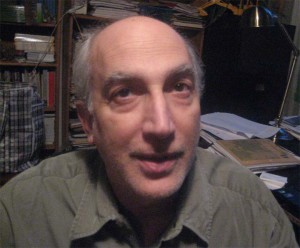 Publishing Talks began as a series of conversations with book industry professionals and others involved in media and technology about the future of publishing, books, and culture. As we continue to experience disruption and change in all media businesses, I’ve been talking with some of the people involved in our industry about how publishing might evolve as our culture is affected by technology and the larger context of civilization and economics.
Publishing Talks began as a series of conversations with book industry professionals and others involved in media and technology about the future of publishing, books, and culture. As we continue to experience disruption and change in all media businesses, I’ve been talking with some of the people involved in our industry about how publishing might evolve as our culture is affected by technology and the larger context of civilization and economics.
I’ve now expanded the series to include conversations that go beyond the future of publishing. I’ve talked with editors and publishers who have been innovators and leaders in independent publishing in the past and into the present, and will continue to explore the ebb and flow of writing, books, and publishing in all sorts of forms and formats, as change continues to be the one constant we can count on.
It’s my hope that these conversations can help us understand the outlines of what is happening in publishing and writing, and how we might ourselves interact with and influence the future of publishing as it unfolds.
The latest in this series of interviews with important independent publishers and editors is my talk with yet another old friend, James Sherry, founder of both Roof Books and the Segue Foundation, in New York City. I have followed and admired his writing and publishing for more than three decades now.
Sherry is the author of 14 books of poetry and prose, most recently Oops! Environmental Poetics (2014). He is the publisher of Roof Books, a press he founded in 1979, and the Segue Foundation, a nonprofit chartered in 1977. He lives in New York City.
With Roof Books and Segue, James has been a significant force in the promotion of experimental and innovative writing, both as a publisher, with more than 150 titles now in print, and as a venue for live events and poetry readings. At one point, Segue was the distributor for some of the most significant literary journals and small presses, including, notably, L=A=N=G=U=A=G=E, edited by Charles Bernstein and Bruce Andrews.
For this interview, I had the opportunity to speak with James Sherry in New York City, where he and Segue are going strong – the Segue calendar of events demonstrates some of the best of contemporary innovative writing, and Roof Books also continues to produce significant publications that anyone interested in modern poetry should be following.
Podcast: Play in new window | Download
David Wilk talks with John O’Brien of Dalkey Archive Press
January 26, 2016 by David
Filed under Publishing History, PublishingTalks
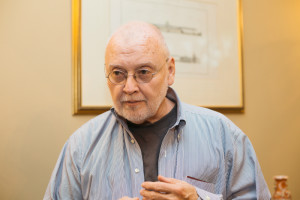 Publishing Talks began as a series of conversations with book industry professionals and others involved in media and technology about the future of publishing, books, and culture. As we continue to experience disruption and change in all media businesses, I’ve been talking with some of the people involved in our industry about how publishing might evolve as our culture is affected by technology and the larger context of civilization and economics.
Publishing Talks began as a series of conversations with book industry professionals and others involved in media and technology about the future of publishing, books, and culture. As we continue to experience disruption and change in all media businesses, I’ve been talking with some of the people involved in our industry about how publishing might evolve as our culture is affected by technology and the larger context of civilization and economics.
I’ve now expanded the series to include conversations that go beyond the future of publishing. I’ve talked with editors and publishers who have been innovators and leaders in independent publishing in the past and into the present, and will continue to explore the ebb and flow of writing, books, and publishing in all sorts of forms and formats, as change continues to be the one constant we can count on.
It’s my hope that these conversations can help us understand the outlines of what is happening in publishing and writing, and how we might ourselves interact with and influence the future of publishing as it unfolds.
The latest in this series of interviews with publishers and editors is my talk with another old friend, John O’Brien, founder of Dalkey Archive Press and the Review of Contemporary Fiction. The journal began in 1981 and the press was launched in 1984. It’s a remarkable and singular enterprise, committed to publishing internationally as almost no other American publisher. Today the press and journal are based in Victoria, Texas through the auspices of the University of Houston at Victoria, and in Dublin, Ireland, with offices at the Trinity University.
If you are interested in the history of the press as explained by John himself, there is an excellent descriptive piece about Dalkey on its own website here. John places the Review (RCF) and the press (Dalkey) as coming literally from his own interest in writers of substance who were and still are not often included in the mainstream of literary culture. In that way, John and his publishing have always been self identified as outsiders, but of course through his own critical and publishing efforts, and other circumstances, no small number of the writers that have either been covered in RCF or published by Dalkey (or both) have reached a meaningful level of recognition and significance over these many years of the his work.
It is no small thing to have been at this work for so long, and so well. The internationalist tendency here is a strong one, from Luisa Valenzuela to Wallace Markham, to Flann O’Brien and many others, John has helped introduce an incredible range of writers from all over the world to North American readers, and vastly expanded the literary landscape for many of us. His commitment to a range of American writers like Paul Metcalf, Gilbert Sorrentino, Doug Woolf and many others, has been nothing short of heroic.
Writing on the Press’ own website, this is what John says about his goals for Dalkey and RCF: “I wanted the Press to define the contemporary period, or at least what I saw as what was most important in the contemporary period. Further, I wanted these books permanently protected, which is why from the start the Press has kept all of its fiction in print, regardless of sales. And as with the Review, I wanted the books to represent what was happening around the world rather than more or less being confined to the United States. Like the Review, Dalkey Archive Press was and is a hopelessly quixotic venture.”
In 2011, Dalkey Archive received a Lifetime Achievement Award from the National Book Critics Circle, and in 2015 John O’Brien was made a knight in the Orde des Arts et des Lettres for his contributions to publishing French literature abroad. Not bad for such a “hopelessly quixotic” operation.
John and I have many interests in common and count each others as friends and fellow travelers in literature and writing. Having this conversation about RCF and Dalkey, programs I believe have incalculable value to our literary culture, was a true pleasure for me, and one that I will always treasure.
Length alert: this is a longer conversation than most (68 minutes), but I hope will be well worth the time spent in listening. Thanks!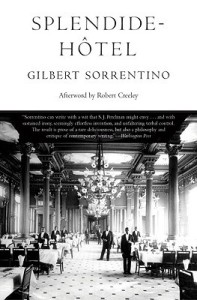
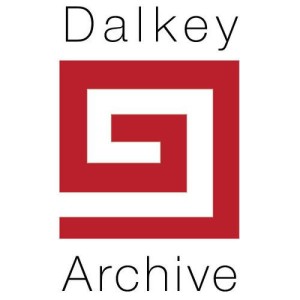
Podcast: Play in new window | Download
David Wilk talks with Bill Henderson of Pushcart Press
January 4, 2016 by David
Filed under Publishing History, PublishingTalks
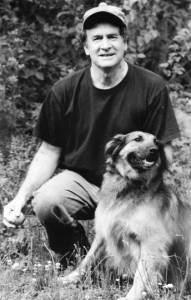 Publishing Talks began as a series of conversations with book industry professionals and others involved in media and technology about the future of publishing, books, and culture. As we continue to experience disruption and change in all media businesses, I’ve been talking with some of the people involved in our industry about how publishing might evolve as our culture is affected by technology and the larger context of civilization and economics.
Publishing Talks began as a series of conversations with book industry professionals and others involved in media and technology about the future of publishing, books, and culture. As we continue to experience disruption and change in all media businesses, I’ve been talking with some of the people involved in our industry about how publishing might evolve as our culture is affected by technology and the larger context of civilization and economics.
I’ve now expanded the series to include conversations that go beyond the future of publishing. I’ve talked with editors and publishers who have been innovators and leaders in independent publishing in the past and into the present, and will continue to explore the ebb and flow of writing, books, and publishing in all sorts of forms and formats, as change continues to be the one constant we can count on.
It’s my hope that these conversations can help us understand the outlines of what is happening in publishing and writing, and how we might ourselves interact with and influence the future of publishing as it unfolds.
It is my great pleasure and honor to have a conversation about publishing with extraordinary Bill Henderson, the founder and editor of Pushcart Press and the Pushcart prize.
Pushcart was founded in 1972, the same year Bill ended his gainful employment as an editor at Doubleday (which is now one of the many imprints of Penguin Random House). Bill’s first book was the very important Publish It Yourself Handbook, published in 1973 and distributed then more or less by hand, at least initially. This book is a collection of essays by such luminaries as Anais Nin, Stewart Brand, Virginia and Leonard Woolf. Over the years it has sold over 70,000 copies through four editions and has been a touchstone for independent publishing.
But it was really Henderson’s idea for a prize and anthology to recognize and celebrate the best work of the independent magazines and presses that were flowering in those days that has made Pushcart so meaningful and important. It was in 1976 that Bill and a group of Founding Editors he enlisted, including Paul Bowles, Ralph Ellison, Joyce Carol Oates and Reynolds Price, that began the Pushcart Prize anthology that is still published annually, now forty years on.
The original model is still in place. Publishers, magazines and Pushcart’s contributing editors nominate work they feel is their best, and Bill himself reads everything and selects what he feels is the best work from the hundreds of works submitted. It’s an incredible accomplishment that has helped launch and sustain the work of now thousands of writers and presses.
Pushcart is adamantly individualistic and essentially noncommercial. Its books are distributed by WW Norton, but otherwise, Bill is a one person operation. The press is now a nonprofit, but that means he has to raise money for it, and that takes time too.
As our conversation together will demonstrate, Bill shows no sign of slowing down and no sign of changing his opinion about what matters in writing and publishing. His commitment to the work is unwavering, and what he has done is truly magnificent. I am proud to have had an association with Pushcart from its inception, and am in awe of the work Bill and his operation has accomplished over these many years.
You can learn more about Pushcart here. Order the new anthology from your favorite independent bookstore, and if you are as impressed as I think you will be, make a donation to Pushcart here.
And there is even more to the Pushcart effort – Bill Henderson operates a bookstore on his property every summer in Maine, where he has also built a cathedral of local stone (profiled in the NY Times!)

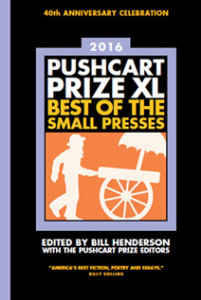
Podcast: Play in new window | Download
David Wilk talks with Nicolás Kanellos of Arte Publico Press
December 14, 2015 by David
Filed under Publishing History, PublishingTalks
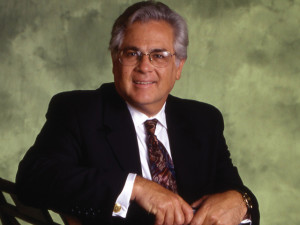 Publishing Talks began as a series of conversations with book industry professionals and others involved in media and technology about the future of publishing, books, and culture. As we continue to experience disruption and change in all media businesses, I’ve been talking with some of the people involved in our industry about how publishing might evolve as our culture is affected by technology and the larger context of civilization and economics.
Publishing Talks began as a series of conversations with book industry professionals and others involved in media and technology about the future of publishing, books, and culture. As we continue to experience disruption and change in all media businesses, I’ve been talking with some of the people involved in our industry about how publishing might evolve as our culture is affected by technology and the larger context of civilization and economics.
I’ve now expanded the series to include conversations that go beyond the future of publishing. I’ve talked with editors and publishers who have been innovators and leaders in independent publishing in the past and into the present, and will continue to explore the ebb and flow of writing, books, and publishing in all sorts of forms and formats, as change continues to be the one constant we can count on.
It’s my hope that these conversations can help us understand the outlines of what is happening in publishing and writing, and how we might ourselves interact with and influence the future of publishing as it unfolds.
Over the past several years, I have had a number of conversations with the literary editors and publishers whose work in independent publishing has been influential during the past four, or sometimes even five decades. Independent literary publishing, both magazines and books, has been and continues to be at the forefront of cultural change, enabling independent and outsider writing to be available to readers. One of the most important of these presses is Arte Publico Press, founded by writer and scholar Nicolás Kanellos, housed at the University of Houston for many years now.
As Nicolás says about his founding of the press: “In the early 1970s, it became obvious that Hispanic writers were not being published by mainstream presses. Because there was no outlet for the creative efforts of these Latino writers, their work was condemned to be forgotten, lost or just delivered orally through performance.”
Starting, as so many publishers have done, with a literary magazine, Kanellos founded the Revista Chicana-Riqueña in Gary, Indiana, in 1972. Revisita was a quarterly magazine for Latino literature and cultural arts that subsequently evolved into the well respected Americas Review, which published its final issue, Volume 25, Numbers 1-4, in 1999.
Kanellos then founded Arte Público Press in 1979 to further expand the work of providing a n important forum for Hispanic literature. In 1980, Kanellos was offered a teaching position at the University of Houston, and brought Arte Publico with him, where it has now thrived for 35 years.
Arte Publico has published an incredible range of important Hispanic writers of many different backgrounds since its beginnings nearly four decades ago. And Kanellos and the press have expanded into a range of other important programs, including collecting and archiving lost Latino writings from the colonial era to today through the Recovering the U.S. Hispanic Literary Heritage project, and more recently a Latino children’s publishing program. The list of authors that Arte Publico has published is truly astonishing, and its impact on writers and readers alike is immeasurable.
It is my great pleasure to speak with my old friend Nicolás Kanellos for Writerscast about his work as editor, publisher and literary impressario. Publisher website here. NBC Latino profile of Kanellos and the press here.
Note to listeners, as with most of the Publishing Talks interviews, this is longer than most podcasts at 49 minutes, but hopefully well worth your time to listen and enjoy.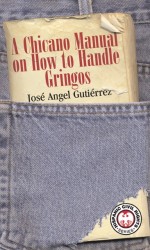
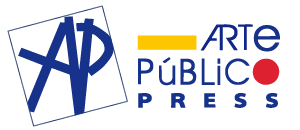
Podcast: Play in new window | Download

